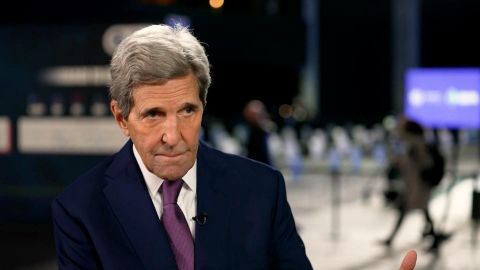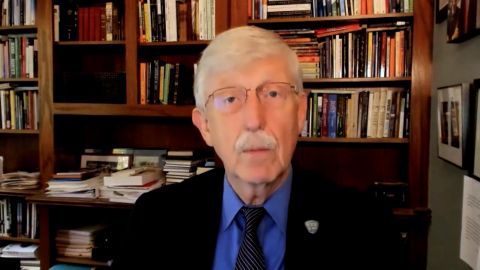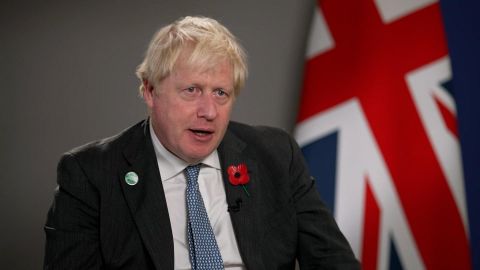Read Transcript EXPAND
CHRISTIANE AMANPOUR: Narendra Modi, the prime minister of India, who is actually here, has pledged to be carbon-neutral by 2070. That is a full two decades later than all of you major polluters are pledging. I mean, what does that mean even, 2070?
JOHN KERRY, U.S. SPECIAL ENVOY FOR CLIMATE CHANGE: Well, it remains to be seen what that means, because he accompanied that with a major commitment to the deployment of renewable energy, so 450 gigawatts of renewables. And we have actually formed a partnership with India. I have appointed a full-time person to be on the ground in India to work on this, a major — a senior experienced Foreign Service official. And we have the ability, I think, to be able to work with India to bring finance to the table and bring technology to the table. India is a developing country, genuinely developing at this point, a huge country. And there are challenges, because they don’t have ready alternatives to their energy production. So we, the developed world, must step up in order to help accelerate that. I think India is completely open to the acceleration. I think there are plenty of countries. We have been working with Mexico, with South Africa, with Indonesia, Saudi Arabia, with various countries around the world, Russia. We believe countries want to do things, but can’t to a certain degree. And we have to get people to stop building the current generation of new coal plants. I mean, that erases a lot of the progress that we make.
AMANPOUR: And yet there are no promises to stop individual countries building new coal plants. To wit, China is one who you have worked on very hard. So…
KERRY: Well, there’s no promise yet, but I think what can happen here as we progress…
AMANPOUR: But China is not even here. I mean, the president is not here.
KERRY: Well, China — no, but China’s here.
AMANPOUR: Right.
KERRY: Their lead negotiator, a very, very experienced individual, good friend, we have worked together for 20-plus, 25 years. And Xie Zhenhua knows the ins and outs of this issue. They’re working. We have been meeting and going through various options that may or may not be possible. So, that — we don’t know yet where we are with that. What I will say is…
AMANPOUR: That doesn’t sound very hopeful, sorry, Secretary Kerry, may or may not be possible.
KERRY: No, I’m going to tell you, look…
AMANPOUR: It’s the biggest polluter in the world.
KERRY: Let me tell you where we are; 65 percent of global GDP has now committed over the last nine months to the 1.5 degrees.
AMANPOUR: Do you still think it’s achievable, 1.5?
KERRY: I believe that, if people do what they have laid out as their specific plans, yes. Is it hard? You’re right, it’s damn hard. It’s very hard. But it is better to push for that. It’s better to make that your target, better — what we have done — and we have had all the major environmental modelers check our numbers and our plans. They have come up and said, yes, if you do what you say you’re going to do, you have a nearly 60 percent chance of achieving the 1.5.
About This Episode EXPAND
Boris Johnson discusses efforts to reduce carbon emissions and the state of the pandemic in the UK. John Kerry discusses the progress being made at the COP26 summit. NIH Director Dr. Francis Collins discusses misinformation and vaccine hesitancy.
LEARN MORE


